- Browse
- Data Mining
Data Mining Courses
Data mining courses can help you learn data preprocessing, pattern recognition, and predictive modeling techniques. You can build skills in clustering, classification, and anomaly detection, that support extracting meaningful insights from large datasets. Many courses introduce tools like Python, R, and SQL, along with software such as RapidMiner and Weka, to help you apply these skills in real-world data analysis projects.
Popular Data Mining Courses and Certifications
 Status: NewNewStatus: Free TrialFree TrialU
Status: NewNewStatus: Free TrialFree TrialUUniversity of Pittsburgh
Skills you'll gain: NumPy, Matplotlib, Linear Algebra, Pandas (Python Package), Data Manipulation, Applied Mathematics, Python Programming, Data Analysis, Data Science, Regression Analysis, Data Visualization Software, Statistical Analysis, Mathematics and Mathematical Modeling, Probability & Statistics, Numerical Analysis, Mathematical Modeling, Machine Learning, Computational Logic, Logical Reasoning
Build toward a degree
Beginner · Course · 1 - 4 Weeks
 Status: NewNew
Status: NewNewSkills you'll gain: Data Pipelines, Data Warehousing, SQL, Google Cloud Platform, Data Processing, Data Quality, Apache Spark, Generative AI, Big Data, Serverless Computing, Model Evaluation, Machine Learning, Exploratory Data Analysis, Time Series Analysis and Forecasting, Classification Algorithms
Intermediate · Course · 1 - 4 Weeks
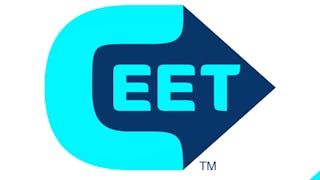 Status: Free TrialFree Trial
Status: Free TrialFree TrialSkills you'll gain: Governance, Data Ethics, Business Ethics, Business Leadership, Organizational Leadership, Governance Risk Management and Compliance, Ethical Standards And Conduct, Policy Development, Human Resource Policies, Culture Transformation, Business Transformation, Stakeholder Engagement, Data Governance, Responsible AI, Policy Analysis, Stakeholder Management, Change Management, Employee Engagement
4.6·Rating, 4.6 out of 5 stars90 reviewsBeginner · Course · 1 - 3 Months
 Status: Free TrialFree TrialJ
Status: Free TrialFree TrialJJohns Hopkins University
Skills you'll gain: Data Modeling, Graphing, Mathematical Modeling, Algebra, Trigonometry, Linear Algebra, Calculus, Graphical Tools, Mathematical Software, Applied Mathematics, Geometry
4.8·Rating, 4.8 out of 5 stars118 reviewsBeginner · Course · 1 - 3 Months
 Status: Free TrialFree Trial
Status: Free TrialFree TrialSkills you'll gain: Tableau Software, Data Transformation, Data Integration, SQL Server Integration Services (SSIS), Data Visualization Software, Relational Databases, Data Management, Advanced Analytics, Data Manipulation, Data Analysis, Data Cleansing, Business Intelligence, Forecasting
Intermediate · Course · 1 - 4 Weeks
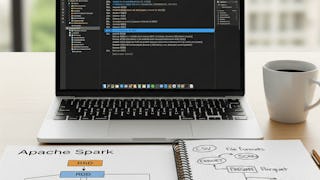 Status: NewNewStatus: Free TrialFree Trial
Status: NewNewStatus: Free TrialFree TrialSkills you'll gain: Apache Spark, PySpark, Data Persistence, Big Data, Data Processing, Distributed Computing, Scala Programming, JSON, Data Transformation, Performance Tuning
Mixed · Course · 1 - 4 Weeks
 Status: Free TrialFree Trial
Status: Free TrialFree TrialSkills you'll gain: Data Import/Export, Pandas (Python Package), Pivot Tables And Charts, Jupyter, Microsoft Excel, Data Analysis, Data Manipulation, Python Programming, Data Structures, Development Environment, Object Oriented Programming (OOP)
4.7·Rating, 4.7 out of 5 stars30 reviewsBeginner · Course · 1 - 4 Weeks
 Status: NewNewStatus: Free TrialFree Trial
Status: NewNewStatus: Free TrialFree TrialSkills you'll gain: Exploratory Data Analysis, Matplotlib, Box Plots, Data Analysis, Data Visualization, Descriptive Statistics, Scatter Plots, Data Visualization Software, Histogram, Seaborn, Statistical Analysis, Correlation Analysis, Statistical Methods
Beginner · Course · 1 - 4 Weeks
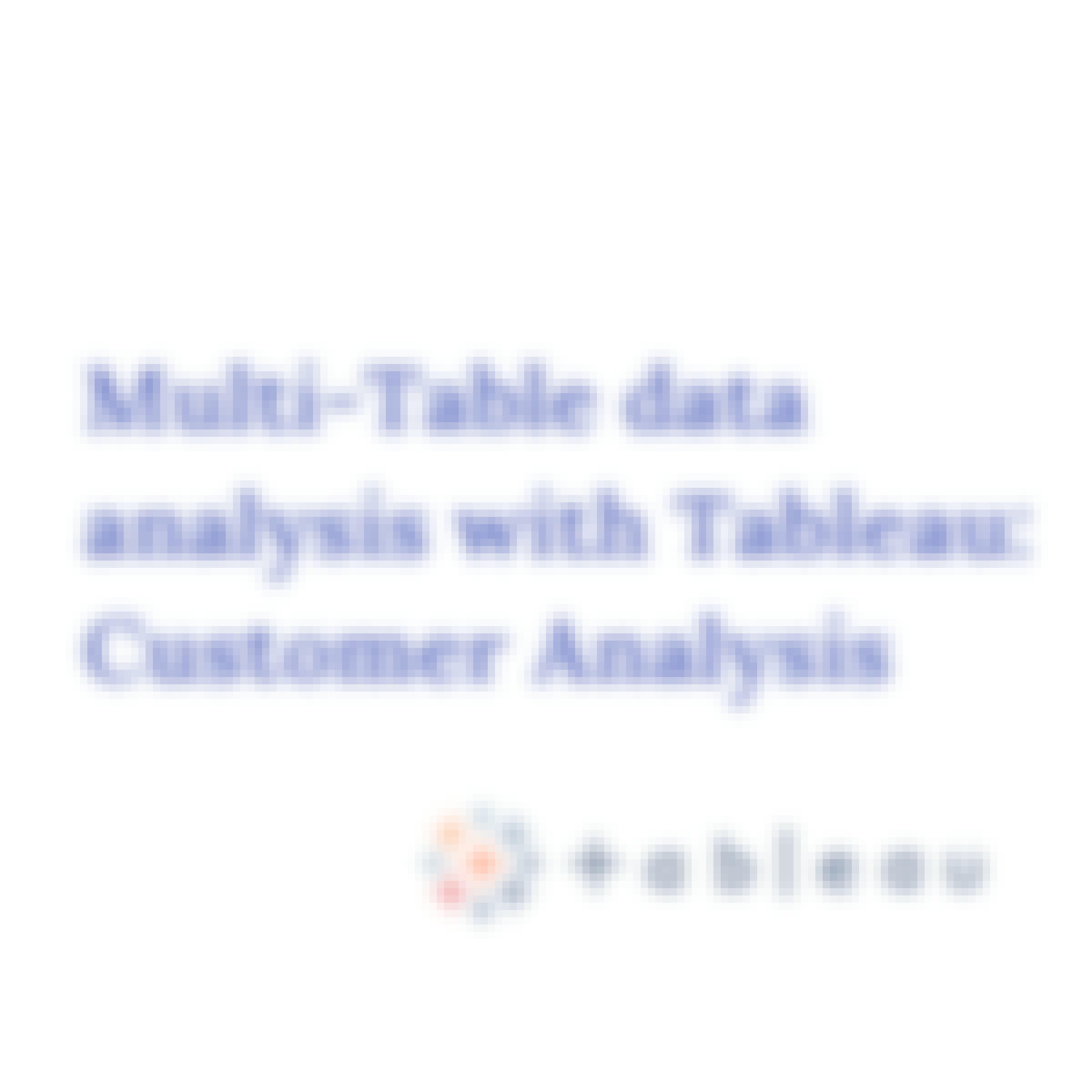 Status: FreeFree
Status: FreeFreeSkills you'll gain: Dashboard, Interactive Data Visualization, Tableau Software, Data Presentation, Data Import/Export, Data Visualization, Data Visualization Software, Business Intelligence, Data Analysis, Data Integration, Data Modeling
Intermediate · Guided Project · Less Than 2 Hours
 Status: Free TrialFree TrialU
Status: Free TrialFree TrialUUniversity of Colorado Boulder
Skills you'll gain: Descriptive Statistics, Statistical Visualization, Data Transformation, Data Cleansing, Probability, Box Plots, Histogram, Probability Distribution, Scatter Plots, Microsoft Excel, Excel Formulas, Data Analysis, Bayesian Statistics
4.5·Rating, 4.5 out of 5 stars39 reviewsBeginner · Course · 1 - 3 Months
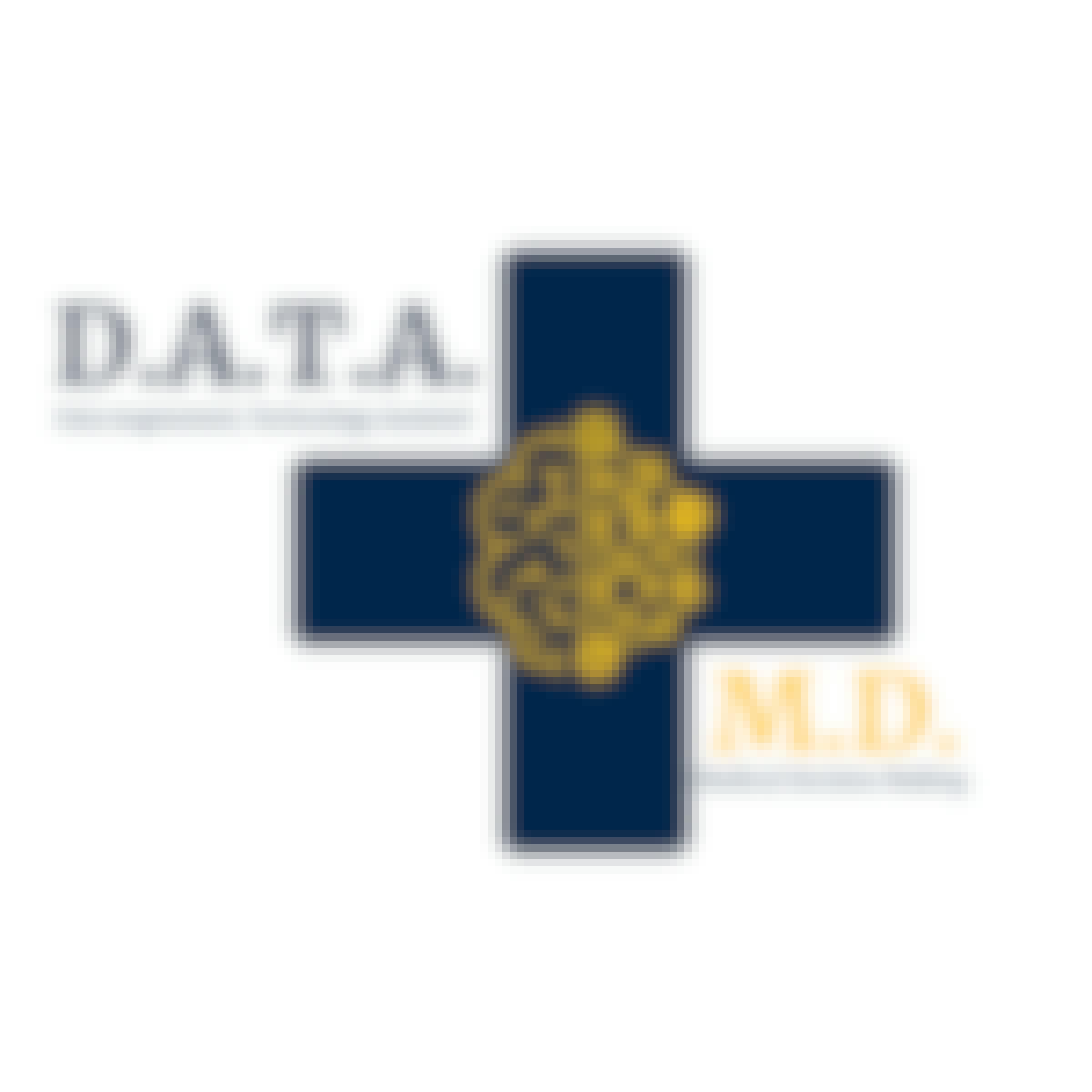 Status: PreviewPreviewU
Status: PreviewPreviewUUniversity of Michigan
Skills you'll gain: Healthcare Ethics, Diagnostic Tests, Statistical Methods, Patient Communication, Model Evaluation, Healthcare Industry Knowledge, Clinical Assessment, Health Informatics, Medical Privacy, Responsible AI, Artificial Intelligence and Machine Learning (AI/ML), Health Disparities
Beginner · Course · 1 - 4 Weeks
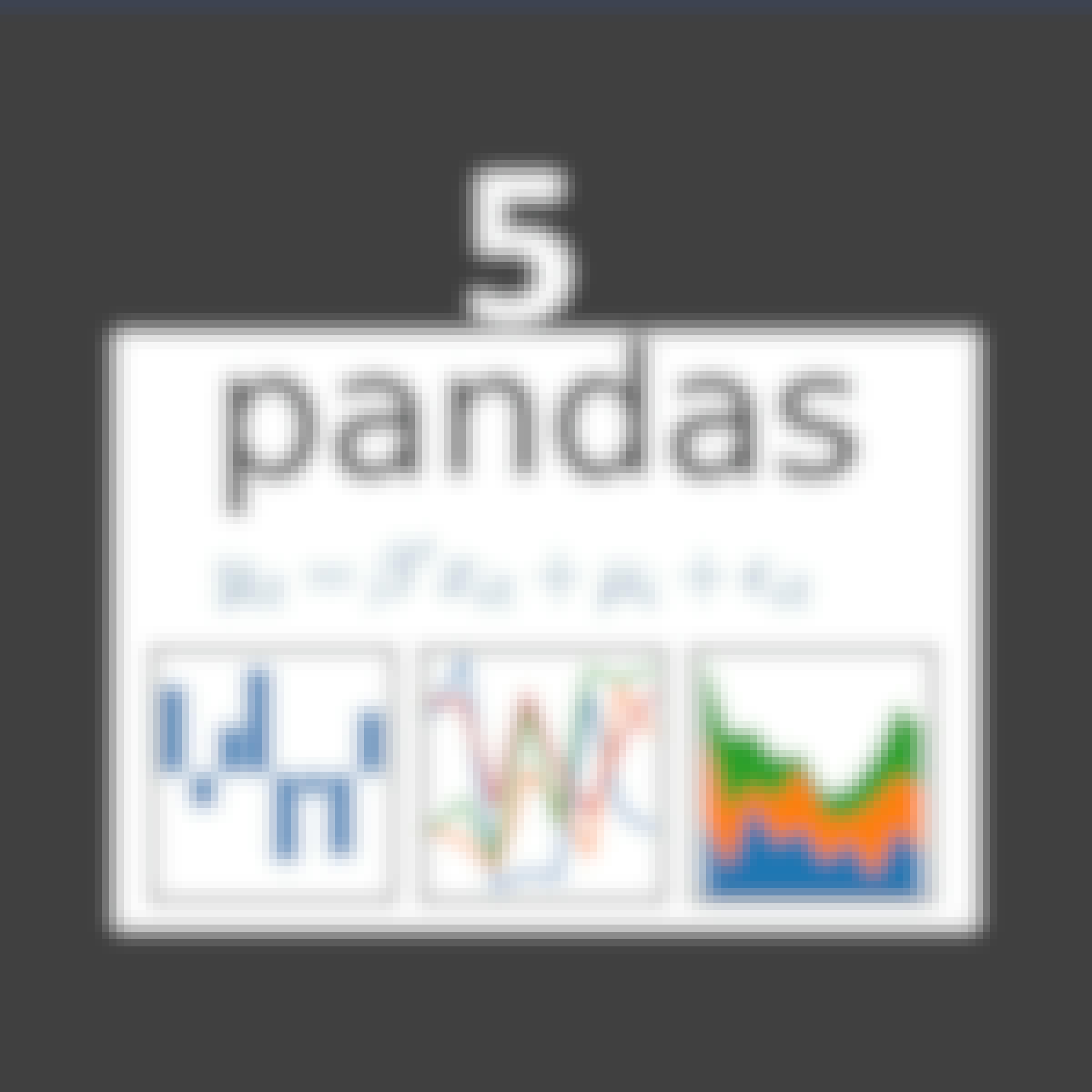
Skills you'll gain: Pandas (Python Package), Data Visualization, Data Manipulation, Data Cleansing, Matplotlib, Text Mining, Exploratory Data Analysis, Data Analysis, Data Preprocessing, Python Programming
4.6·Rating, 4.6 out of 5 stars17 reviewsBeginner · Guided Project · Less Than 2 Hours
In summary, here are 10 of our most popular data mining courses
- Linear Algebra and Regression Fundamentals for Data Science: University of Pittsburgh
- Google BigQuery for Data and ML Engineers: Pearson
- Create and Lead an Ethical Data-Driven Organization: CertNexus
- Calculus through Data & Modeling: Precalculus Review: Johns Hopkins University
- Mastering Advanced Data and Analytics Features in Tableau: SkillUp
- Apache Spark: Apply & Evaluate Big Data Workflows: EDUCBA
- Foundations of Data Analysis with Pandas and Python: Packt
- Data Science Fundamentals Part 2: Unit 1: Pearson
- Multi-Table data analysis with Tableau: Customer Analysis: Coursera
- Statistics and Data Analysis with Excel, Part 1: University of Colorado Boulder










